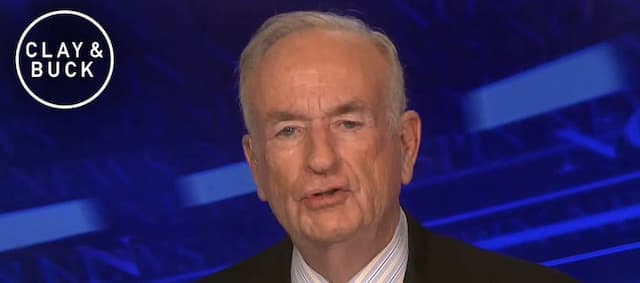The Zelensky vs. Putin Narrative
CLAY: So, Buck, as we went to break there, I was talking about, to a large extent, the Russia-versus-Ukraine battle has been distilled down to Zelensky against Putin, right? Zelensky is the upstart underdog hero of democracy, as it were, in the way that this story is being conveyed. And Putin is the archangel of modern-day death and autocracy and certainly is being compared to Adolf Hitler in many stretches of the world.
Okay. So the question that is out there is how does this resolve itself as it pertains to Zelensky? Because the truth of the matter is this: As long as Zelensky is alive then there is a tremendous heartbeat of democracy that will continue with him. But if Russia is able to get him and kill him — it’s crude, but this is the reality — then that heartbeat of democracy is potentially challenged.
Now, simultaneously, however, if Zelensky is captured and killed, then he becomes a martyr, and there is an argument that he might become even more powerful for the Ukrainian people in death than he did in life — and, certainly, it will mobilize even more anger Vladimir Putin in the nation and in the world as a whole because many of us are seeing Zelensky as the personification of the Ukrainian resistance. So, Buck, how does this play out as it pertains, in your mind, to Zelensky himself? Is it smarter for him to flee and keep his life even as Ukraine falls? Is it better for him to stay there and fight to the bitter end? And how does Russia handle it? This is a big part of the story.

BUCK: It’s better for Ukraine, for the resistance against this Russian aggression, for him to stay. I think that is pretty clear. It’s obviously much higher risk for Zelensky personally, and this is a fascinating question because you could see both sides of this — and I think that’s so important too. There’s a lot of people that are running around analyzing this guy stateside projecting certainty, and I’m telling you right now: I was analyzing two wars for years. People who tell you they’re certain tend to be wrong a lot. And on this issue of Putin and his mind-set, on the one hand you know that there was the poisoning, as we mentioned, of I believe it was Victor Yushchenko —
CLAY: Yes.
BUCK: — the Ukrainian premier, what, over a decade ago now with dioxin which is why you see his horribly scarred his face. He looked like a different person afterwards. That was meant to send a message: This is how the Russians do things. Same thing with the polonium poisoning of the Russian defector in the U.K., put radioactive isotopes inside him to erode him from the inside out. It’s horrible.
They do this to send a message. So that’s extreme cruelty on display from the Russians but with a degree of plausible deniability. Whether we think it’s plausible or not, they’ll say, “Oh, that wasn’t us!” In the case of the poisoning, for example, that would be the Russian external intelligence operations of the SVR. The SSB is the domestic service. Think of it more like their version of the FBI on steroids.
The SVR is more like their version of the CIA. Same thing in the U.K. There’s MI5 for domestic intelligence, MI6 for external foreign intelligence. So they had some level of plausible deniability. If they kill Zelensky, everybody knows that they had killed Zelensky, which brings my other point, Clay, which I think you’re getting to: What does this mean in the long term?
The Russians want what they want in Ukraine while also being able to reenter, sure, as a state that a lot of people view negatively but the Russian government is gonna be at the U.N. and going forward at some point go back into the international community, whether people like it or not. They’re not going to accept being a total pariah state like, say, North Korea. Now, their energy reserves is why that’s a lot harder.
 I do think, though, there’s a line at which Putin realizes if you’re assassinating, effectively, a foreign head of state, people are gonna remember that. If you’re killing large numbers of Ukrainian civilians, people are going to remember that past even the duration of the conflict. So I don’t have a clear answer other than I think there are conflicting forces here, that Putin is vicious in a way we’ve all seen on the world stage before and is now, but also he doesn’t want to be turned into Khadafy, as we know.
I do think, though, there’s a line at which Putin realizes if you’re assassinating, effectively, a foreign head of state, people are gonna remember that. If you’re killing large numbers of Ukrainian civilians, people are going to remember that past even the duration of the conflict. So I don’t have a clear answer other than I think there are conflicting forces here, that Putin is vicious in a way we’ve all seen on the world stage before and is now, but also he doesn’t want to be turned into Khadafy, as we know.
CLAY: There’s so many different directions this can go, Buck, and I think what you said is people who claim that they know certainty or have certitude as to how this plays out are missing so many of the different objectives at play — and so many, frankly, of the fine lines between the direction this can head. But I think Zelensky has become the focal point for many people all around the world as the personification of the battle that Ukraine is waging.





